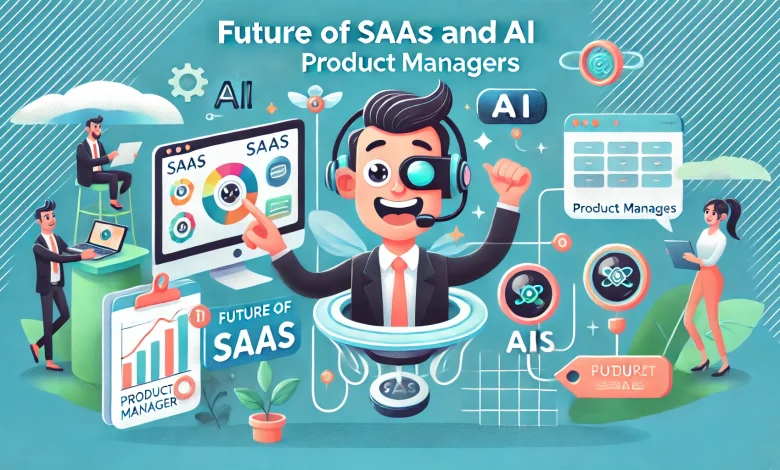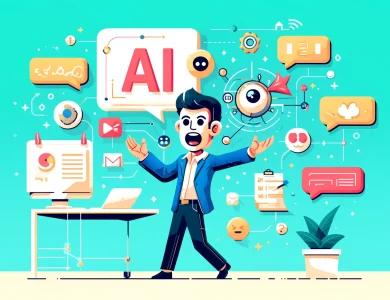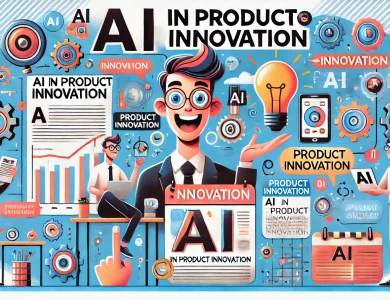The Future of Coding and SaaS in the Age of AI: How Product Managers Can Thrive

As AI continues to evolve, many people are worried about whether coding and software development jobs will soon become obsolete.
I’ve been thinking a lot about how AI is going to change the landscape of SaaS (Software as a Service) and whether we’ll even need to code anymore.
The question on many minds is, will AI make coding irrelevant, and if so, what does that mean for the future of SaaS?
I believe that rather than eliminating coding entirely, AI will transform how we approach software development and product management.
For product managers, this shift presents a massive opportunity—not only to survive but to thrive by guiding AI-driven innovations and redefining how SaaS platforms are built, maintained, and improved.
Let me walk you through some of the key changes on the horizon and how you can stay ahead of the curve.
How AI Will Change the Future of SaaS
We’ve already seen the beginnings of AI-driven development, where tools like GitHub Copilot help developers write code faster. But what if we took that a step further? Imagine a future where product managers no longer need development teams to build or optimize SaaS products. Instead, AI could autonomously handle everything from code generation to deployment, allowing us to focus entirely on strategy and user experience.
This shift would mark a fundamental change in how SaaS platforms are managed. Instead of overseeing developers and coordinating between engineering and design teams, product managers would become the orchestrators of AI systems, giving us the ability to control every aspect of a product’s lifecycle from a high level.
Example:
I’ve recently started exploring tools like no-code/low-code platforms, and it’s clear that these are just the beginning. As AI continues to evolve, these platforms will become more sophisticated, and it won’t be long before they fully automate many of the tasks we rely on coders for today.
How Product Managers Can Leverage AI to Drive Innovation
In this rapidly changing landscape, product managers have the unique opportunity to leverage AI to their advantage. Here are some ways you can adapt and even lead the charge in AI-driven SaaS:
1. AI-Powered Product Management Tools
AI can already help with data analysis, but in the future, it will be able to predict customer needs, analyze trends, and even suggest new product features based on market data. This will allow product managers to make data-driven decisions in real-time, without the need for extensive A/B testing or user feedback loops.
To get ahead of the curve, I’ve started experimenting with AI-driven roadmapping tools that analyze product engagement and customer feedback to suggest the most impactful next steps. These tools have allowed me to prioritize features based on data, not just gut instinct.
2. Hyper-Personalized Customer Experiences
Imagine SaaS platforms that offer personalized experiences for every user, automatically adapting workflows and features to their specific needs. AI can analyze user behavior and tailor SaaS products to each individual, ensuring higher engagement and customer satisfaction.
Visualization:
An effective way to visualize this process would be through a flowchart illustrating the customer journey, highlighting how AI can adapt and optimize user workflows based on behavior data at each step.
3. AI-Driven Security and Compliance
One of the biggest pain points in SaaS is managing security and compliance, especially for industries like healthcare and finance. AI can autonomously monitor systems for potential threats and ensure that SaaS products remain compliant with ever-changing regulations.
As a product manager, I see this as a huge opportunity. AI-powered tools will make it easier to manage security and compliance without the need for manual audits, freeing up time for more strategic tasks.
The Role of Product Managers in the AI Era
As AI becomes more integrated into the SaaS industry, the role of product managers will shift. We’ll no longer be bogged down by day-to-day technical details or troubleshooting. Instead, we’ll focus on solving problems, understanding user needs, and guiding AI systems toward delivering the best possible product experience.
Here are some ways I plan to adapt:
- Master AI orchestration: Product managers of the future will need to understand how to work with AI tools to optimize product features, user experiences, and business outcomes.
- Emphasize strategy over execution: By automating routine tasks, we’ll have more time to think strategically, focusing on how AI can help us build better products that meet customer needs.
- Foster collaboration between humans and AI: The best results will come from product managers who know how to blend human creativity and AI capabilities, using each for what they do best.
FAQs
Will AI eliminate the need for product managers?
No, AI will automate many of the technical aspects of coding and product development, but product managers will still play a crucial role in strategic decision-making and problem-solving.
How will AI impact the SaaS industry?
AI will transform how SaaS platforms are built and maintained. Many of the tasks that currently require coding will be automated, allowing product managers to focus on orchestrating AI systems rather than managing teams of developers.
What skills do product managers need in the age of AI?
In the future, product managers will need to be adept at working with AI tools, understanding how to use AI for data analysis, customer personalization, and automating routine tasks. Strategic thinking and user empathy will become even more important.
Conclusion: The Future of SaaS and AI is Bright for Product Managers
In conclusion, the future of SaaS in the age of AI is filled with exciting possibilities. While some coding jobs may disappear, the role of the product manager is evolving in a way that will make our work more impactful than ever. By embracing AI and focusing on strategy, user experience, and problem-solving, product managers can position themselves as leaders in the next wave of SaaS innovation.
It’s time to start thinking not about whether AI will replace coding, but about how we can leverage AI to build better products and drive the future of SaaS forward.




